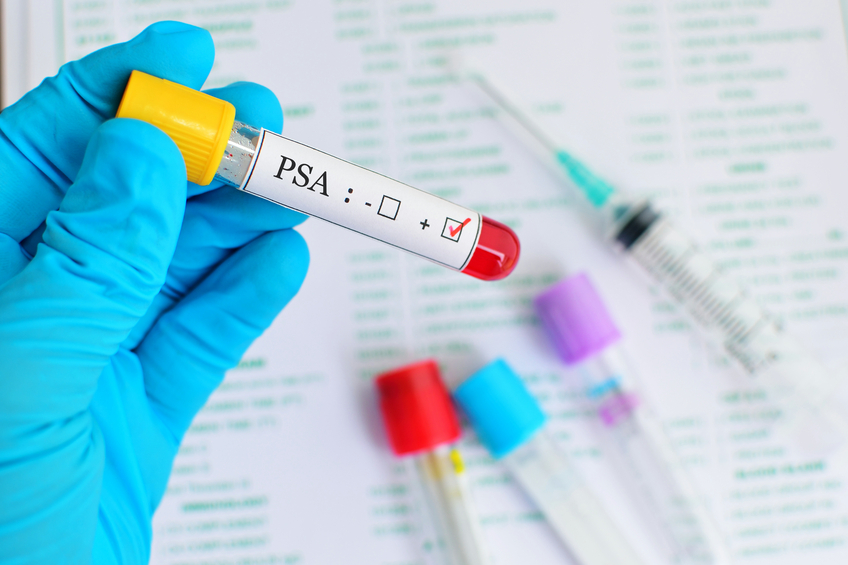A new prostate cancer study is being touted as evidence that men should get the PSA test.1
But don’t be bamboozled by the headlines. This is a bad test.
That’s because PSA screening often starts a medical chain of events that needlessly leaves men impotent and/or incontinent. Sometimes they even die.2 The new study does nothing to change that.
The PSA test is notoriously inaccurate. A high reading can mean you recently went on a long bicycle ride. It can mean you have inflammation that is unrelated to cancer. Or it can just mean that you are getting older, since PSA readings go up with age.
But it doesn’t often mean you have cancer. In fact, about 75% of the time a high reading has nothing to do with cancer.3
Still, after an elevated PSA, men are sent to get a prostate biopsy. This is not a pleasant procedure. It involves passing a large needle through the wall of the rectum into the prostate. A man is often subjected to multiple needle sticks. It’s painful and there can be considerable bleeding. The side effects can be erectile dysfunction, urinary problems, and infections.4
If the biopsy is positive, things get worse.
It’s difficult to know which prostate cancers are dangerous. But only about a third of them progress and become a threat to health.5 Still, instead of watchful waiting, doctors often recommend a prostatectomy. This is surgical removal of the prostate. In 70% of cases, a man is impotent afterward.6,7
And most of the time it’s all for nothing, since about two-thirds of prostate tumors never do any harm.8 Men end up sexually disabled or incontinent for absolutely no reason.
PSA Inventor: My Test Is a Public Health Disaster
The ultimate indictment of the PSA test comes from the man who invented it. He is Richard Ablin, a professor of pathology at the University of Arizona. He discovered the screening in 1970. But today he is appalled at how his invention is used. He calls it “a public health disaster.”9
He wrote a book called The Great Prostate Hoax. It details how the screening industry pushed PSA testing to boost profits.10
There is a better test available. It’s called the PCA3. Unlike the PSA, it is ultra-specific for prostate cancer. It helps distinguish high-risk tumors from those that pose no harm.11
Another plus is that the PCA3 requires no blood draw. It’s a urine test. This screening is now widely available. Ask your doctor for it in place of the PSA test.
And if you’re looking for more smart ways to cut your risk of prostate cancer, you’ll want to see the new video our research team has just produced.
In it, you’ll learn about a cheap, quick, and painless treatment that could practically eliminate the threat of prostate disease… Without drugs, surgery, or radiation.
Watch the short video here now.
In Good Health,

Angela Salerno
Executive Director, INH Health Watch
Like this Article? Forward this article here or Share on Facebook.
References:
1http://www.upi.com/Health_News/2016/06/14/PSA-test-best-at-predicting-lethal-prostate-cancer-study-says/9691465905446/
2http://www.cnn.com/2014/07/18/health/prostate-cancer-overtreament/
3http://www.everydayhealth.com/prostate-cancer/non-cancerous-reasons-your-psa-levels-are-high.aspx
4http://health.usnews.com/health-news/news/articles/2013/10/24/prostate-biopsies-may-cause-unnecessary-worry-for-many-men-study-finds
5http://www.pcf.org/site/c.leJRIROrEpH/b.8833993/k.EC93/New_Urine_Test_for_Prostate_Cancer_Available_Unlike_PSA_Test_is_UltraSpecific_for_Prostate_Cancer.htm
6http://www.cancerresearchuk.org/about-cancer/coping-with-cancer/coping-physically/sex-sexuality-and-cancer/sex-and-cancer-for-men
7http://www.cancerresearchuk.org/about-cancer/type/prostate-cancer/treatment/surgery/radical-prostatectomy
8http://www.harvardprostateknowledge.org/early-stage-prostate-cancer-treat-or-wait
9http://www.medscape.com/viewarticle/828854_5
10http://www.economist.com/news/books-and-arts/21598622-furious-debate-over-screening-prostate-cancer-help-or-harm
11http://www.pcf.org/site/c.leJRIROrEpH/b.8833993/k.EC93/New_Urine_Test_for_Prostate_Cancer_Available_Unlike_PSA_Test_is_UltraSpecific_for_Prostate_Cancer.htm

